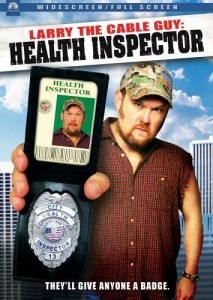Anecdotally, inspectors and operators alike report that stuff, like behaviors, change as soon as the inspector walks in the door. A particularly common practice is for everyone to grab a broom or start washing their hands.
I just saw the precursor to the change in the wild.
Sometimes I need to get off campus to catch up on writing and other stuff. When I’m behind or stuck, I often hit a cafe, a restaurant or a patio and whip out my computer for a couple of hours. There’s something about being in a busy place with lots of background action that helps me focus.
As I sit here at one of my favorite local spots, I heard the manual Mario-Batali-restaurant-inspector-alarm.
A manager just came up to a couple of waitstaff and a cook and said, ‘Just got a text from next door that the health inspector is in the area; make sure all of our logs are filled out and the out-of-date food is chucked.’
Everyone scurried away to take care of stuff that would lead to a bad score. They are currently watching the entrance to see if the inspector is the next through the door.
Inspection reports provide some decent data. But the Hawthorne Effect-esque issue led us to explore other observation data-collection methods.
